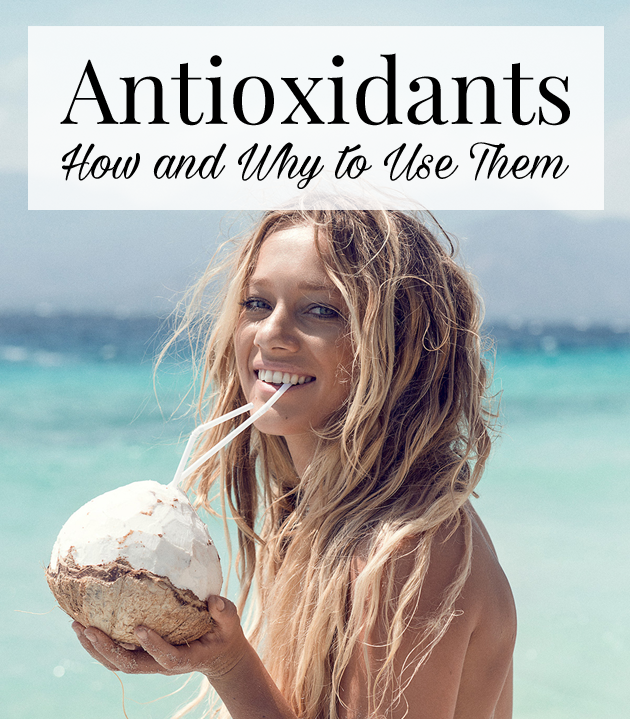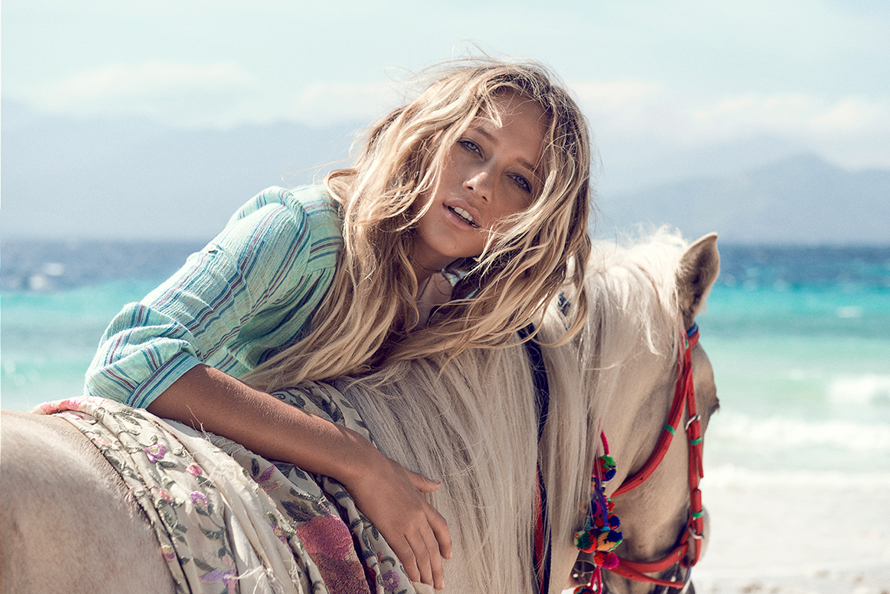The term “antioxidants” is something you’ve no doubt heard being thrown around for years – first it was something to look for in superfoods and now it’s a key component in any good skincare product. These powerful ingredients are often mentioned when talking about anti-ageing but antioxidants have a more critical role to play in your skincare routine – they can help to prevent skin cancer.
What are antioxidants?
Antioxidants are nutrients (vitamins and minerals) and enzymes (proteins inside your body) that can help to prevent and repair damage to your body’s tissue. Antioxidants do this by slowing or preventing the effect of free radicals, which start oxidation that can lead to cell dysfunction (which can cause numerous issues, from premature ageing to cancer). Antioxidants can be applied topically (e.g. in a serum) and incorporated into your diet by regularly eating foods like dark green veggies, nuts, blueberries, salmon, avo, sweet potatoes and green tea.
How do they work?
Antioxidants can help to protect your skin from the damaging effects of the sun (and other external aggressors, like pollution) by speeding up the skin’s natural repair systems and directly inhibiting further damage. Vitamins A*, C and E, resveratrol and the mineral selenium are thought to be particularly helpful in skin care. In addition to helping fortify cells against free radicals, vitamins A and C also encourage cell and tissue growth, helping the body to repair itself.
What’s the connection to skin cancer?
Exposure to the sun causes ultraviolet (UVA & UVB) light to be absorbed by the skin. Too much UV radiation can damage the genetic material (the DNA) in your skin cells. If enough DNA damage builds up over time, it can cause cells to start growing abnormally, which can lead to skin cancer. Antioxidants help to prevent skin cells getting to this point by finding and repairing this damage.
Two important points:
1. Obviously topical antioxidant treatments don’t guarantee that your risk of developing skin cancer is removed; it’s just part of a prevention strategy.
2. Using antioxidant-rich skincare is only the first half of this prevention strategy; the other (even more important) half is sun protection.
How do antioxidants help with anti-ageing?
As well as damaging skin cell DNA, free radicals can also break down elastin and collagen, the proteins that keep our skin firm. These proteins create a framework in the skin that naturally becomes weaker as we age, causing wrinkles and sagging. Exposure to the sun, smoking and pollution all cause free radicals to build up in the skin, speeding up the ageing process. Antioxidants help to slow down the loss of elasticity in the skin by neutralising the free radicals that attack these proteins.
Where do they fit in my skincare routine?
The easiest way to add antioxidants into your routine is using a serum that can go under either your day or night cream, and also under your sunscreen – especially if you’re spending some time outdoors. Antioxidants are often present in moisturisers too but generally speaking the concentration in a serum is higher and therefore more effective.
What products should I try?
I haven’t been using dedicated antioxidants for very long, so I’ve only tried three and they’re all Vitamin C products: Mario Badescu Vitamin C Serum, NeoStrata Enlighten Iluminating Serum and Indeed Labs Vitamin C24 (a very recent purchase).
Other antioxidant serums that I’m aware of and I know are generally accepted to be great include:
SkinCeuticals C E Ferulic
Exuviance Antioxidant Perfect 10 Serum
Paula’s Choice RESIST Super Antioxidant Concentrate Serum
Elizabeth Arden Prevage Anti-aging Daily Serum
Dermalogica MultiVitamin Power Serum
Kiehl’s Powerful-Strength Line-Reducing Concentrate
Also check out the “Antioxidant” section on the Dermastore site for more product ideas.
Interested to know more? Read our Retinol How-To article, and read this post to learn the basics of anti-ageing skincare.
*AKA Retinol
Images from thecoolhour.com



